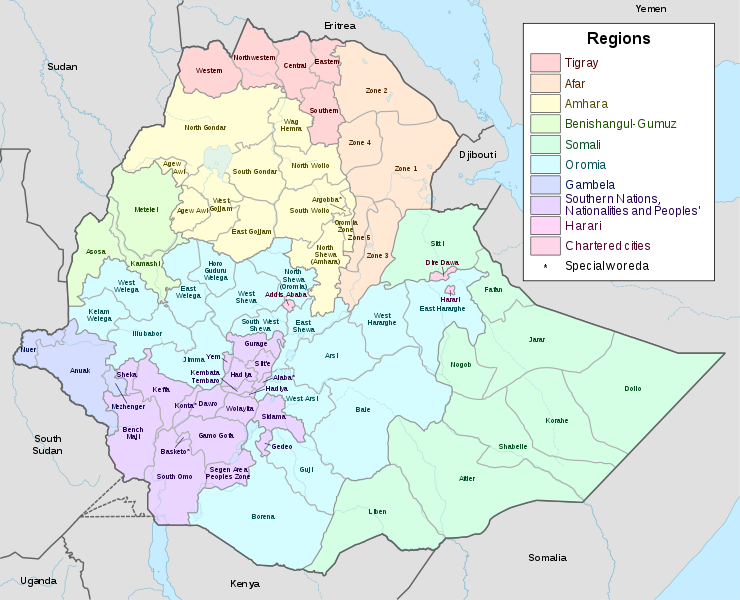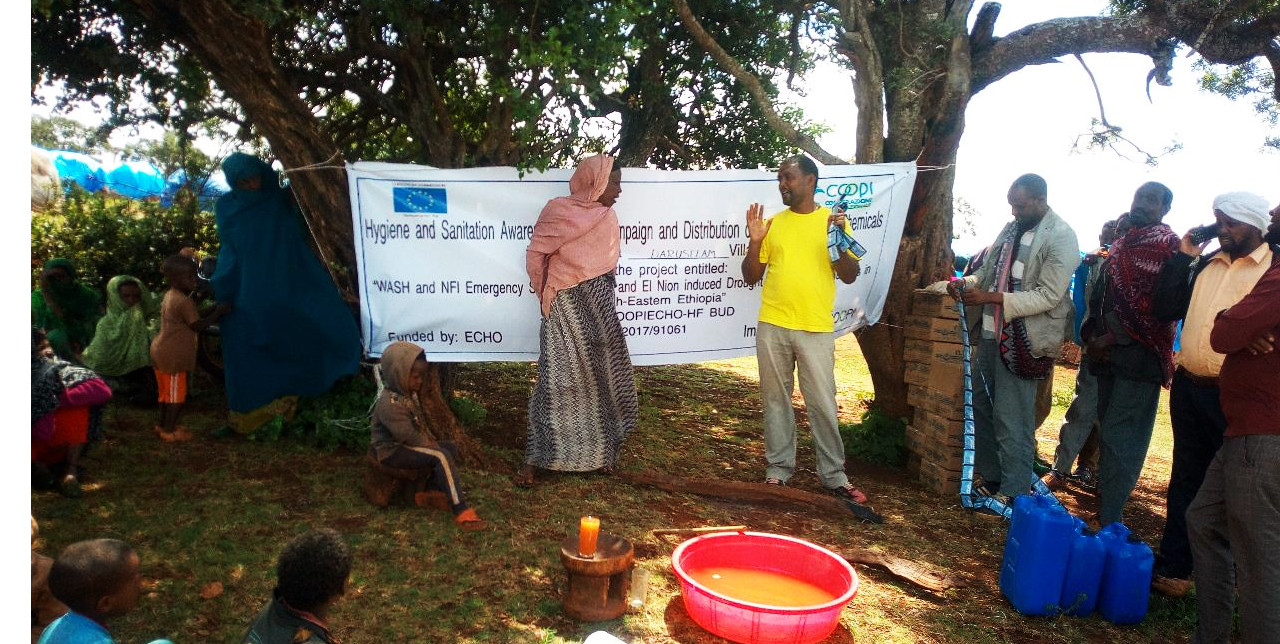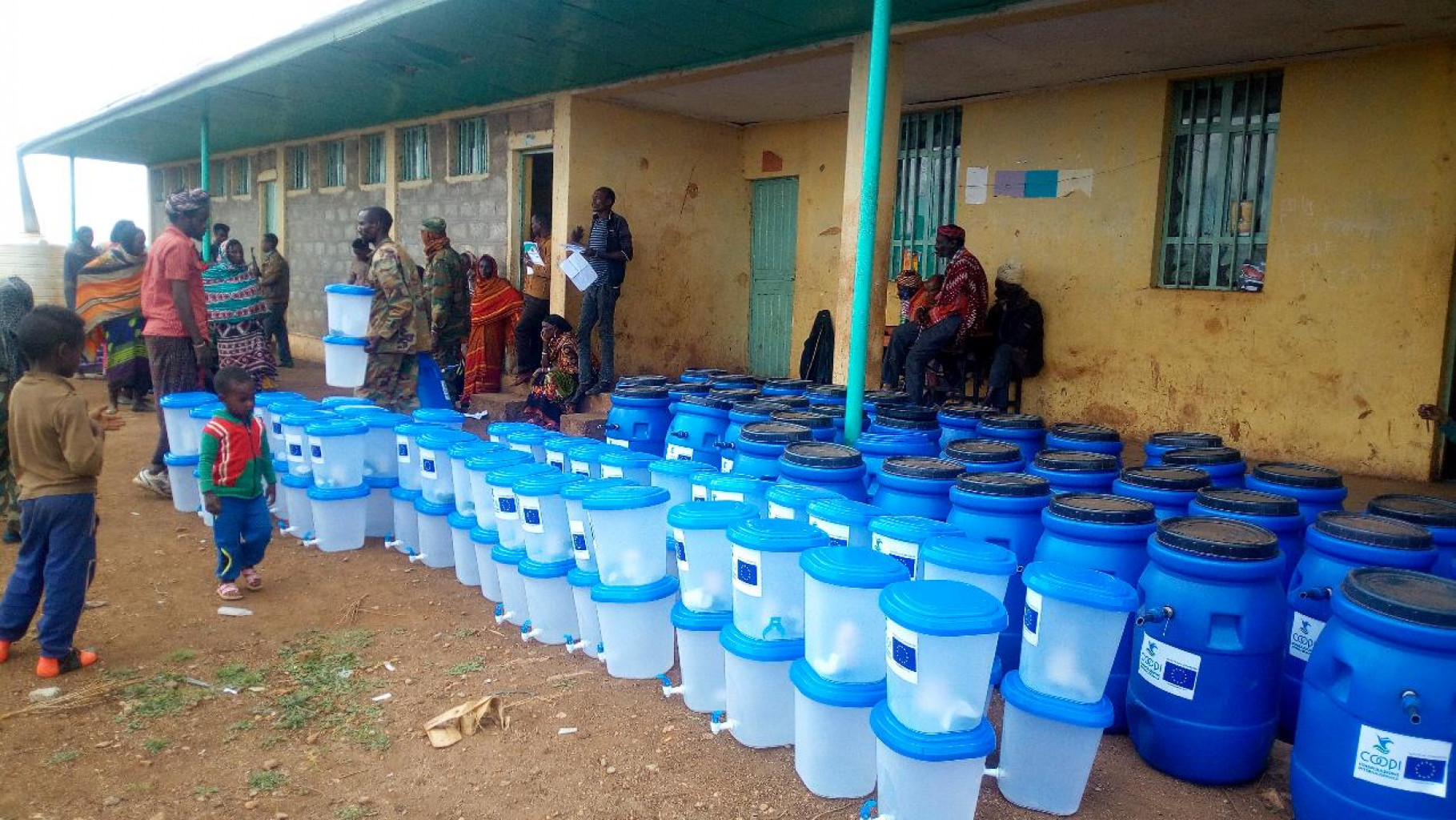30-01-2019 | di COOPI
Ethiopia: Fighting drought, drop by drop
In the last 30 years, Ethiopia has been largely affected by unprecedented drought - the lack of seasonal rains also deeply affected food security and the future of millions of families. The intensification of armed conflicts and the appearance of extreme climate changes, such as El Niño, have further worsen the living conditions of the population, particularly in the Oromia region and in the areas of Guji and Dawa, where we are now operating.

To tackle this critical situation, two years ago we launched the "WASH and NFI Emergency support for internally displaced persons and communities affected by the drought in south-east Ethiopia " project, funded by the European Commission (ECHO, Department for Humanitarian Aid and Civil Protection). Our goal? Restore safe access to water and sanitation and improve the protection of IDPs through the distribution of non-food items (NFIs) in response to emergencies.
The project has now been completed and 38,000 people, including about 14,600 IDPs, have gained access to clean water and adequate sanitation.
However, to achieve this crucial result, we have carried out different activities related to field-specific requirements.
Restoring efficient irrigation systems
To strengthen the population resilience, the project has eased access to drinking water, while promoting efficient irrigation systems: 8 wells have been rebuilt and, given the difficulties in terms of energy supply, we have rehabilitated two solar-powered water schemes.
Considerable progress has also been made in improving the purity and quality of the water, by distributing about 300 ceramic and sand filters, which are extremely efficient in removing pathogens and heavy metals.
The extension of Darusalam's irrigation system by 11 km has also allowed us to reach a considerable number of beneficiaries, who will now be able to use about 30 carts and as many donkeys for the transport of water tanks. In addition, 15 tanks installed in the areas of Guji and Dawa will allow them to draw water more quickly and safely. More resources are now available to the population thanks to the improvement of the water supply, thus reducing tensions and conflicts related to its use.
Dissemination of good hygiene practices
However, making water available to everyone is not enough without training the population about hygiene best practices. To fit this purpose, 7 hygiene campaigns have been organised to raise the awareness and the level of responsibility among the communities concerning water management, water supply systems and the use of water for domestic use. Awareness sessions on hygiene were primarily focused on:
- the correct collection and conservation of water;
- adequate ordinary and sanitary maintenance of water collection centres;
- sustainable financial management of water resources to ensure a recovery of costs.
During training sessions, local operators were taught simple but essential maintenance techniques on how to repair pipes and hand pumps, replace fittings or change taps for fountains.
As Uberto Pedeferri, COOPI Area Manager for Ethiopia, explains, “The ECHO-funded WASH and NFI Emergency support for internally displaced persons and communities affected by the drought in south-east Ethiopia project has been really successful for everyone involved, from local authorities to direct beneficiaries." At the end of the project, all areas of intervention succeeded in tacking the needs and priorities of the target communities, by reducing environmental impact and strengthening local capacities and strategies to reduce any future disaster risk.




 Ethiopia
Ethiopia
